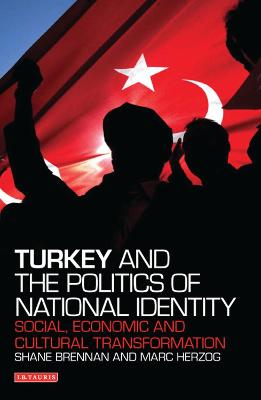Library of Modern Turkey
1 total work
Turkey and the Politics of National Identity
by Shane Brennan and Marc Herzog
Published 1 January 2014
In the first decade of the twenty-first century Turkey experienced an extraordinary set of transformations. In 2001, in the midst of financial difficulties, the country was under IMF stewardship, yet it has recently emerged as one of the fastest growing economies in the world. And on the international stage, Turkey has managed to enhance its position from being a backseat NATO member and outside candidate for EU membership to being an influential regional power, determining and developing its own individual foreign policy. Shane Brennan and Marc Herzog explore how these and other changes have shaped the way people in Turkey perceive themselves and how the country's self-image shapes its actions. In the modern age, the sovereign nation-state still continues to be one of the basic building blocks of social or political identity. The Turkish Republic, founded in 1923, is a good example. In weaving together and selecting certain elements of memory, myth, tradition and symbols, the narratives of national identity in Turkey have been, to a large extent, socially constructed.This volume offers analysis of the ways in which these narratives have been created, maintained and negotiated, and how current economic and political interests have been incorporated into the construction of a modern identity.
External forces such as those of cultural and economic globalisation have also been influential agents in this process. As a result, the space and opportunity for social and cultural expression has increasingly widened while alternative identities and life-style choices at both the collective and individual levels have also become more visible. Bearing this in mind, this book examines issues such as those of alternative gender identity and sexual orientation, formerly taboo issues. Through different approaches engaging with politics, economy, society, culture and history, Turkey and the Politics of National Identity offers new perspectives on the transformation of national identity in this increasingly influential country in the Middle East.
External forces such as those of cultural and economic globalisation have also been influential agents in this process. As a result, the space and opportunity for social and cultural expression has increasingly widened while alternative identities and life-style choices at both the collective and individual levels have also become more visible. Bearing this in mind, this book examines issues such as those of alternative gender identity and sexual orientation, formerly taboo issues. Through different approaches engaging with politics, economy, society, culture and history, Turkey and the Politics of National Identity offers new perspectives on the transformation of national identity in this increasingly influential country in the Middle East.
